Taking down a canopy tent may seem like the easiest part of your outdoor event, but doing it wrong can lead to damage, frustration, or wasted time. Whether you’re wrapping up after a backyard party, a market stall, or a trade show, this guide walks you through the process with practical tips to preserve your gear and make future setups a breeze.
Why Proper Disassembly Matters
Even the most rugged canopy tent can be damaged if handled improperly during takedown. Bent legs, snapped joints, or torn fabrics often result from rushing through the process. Taking a few extra minutes to do it right ensures:
- Longer tent lifespan
- Smoother setup next time
- Warranty remains valid
- Minimal wear and tear
- Improved resale value
Step-by-Step: How to Take Down Your Canopy Tent
Step 1: Remove Sidewalls and Accessories
Start by detaching any sidewalls, banners, or hanging decorations from the frame. If they’re secured with Velcro, gently peel them off and fold them neatly for storage.
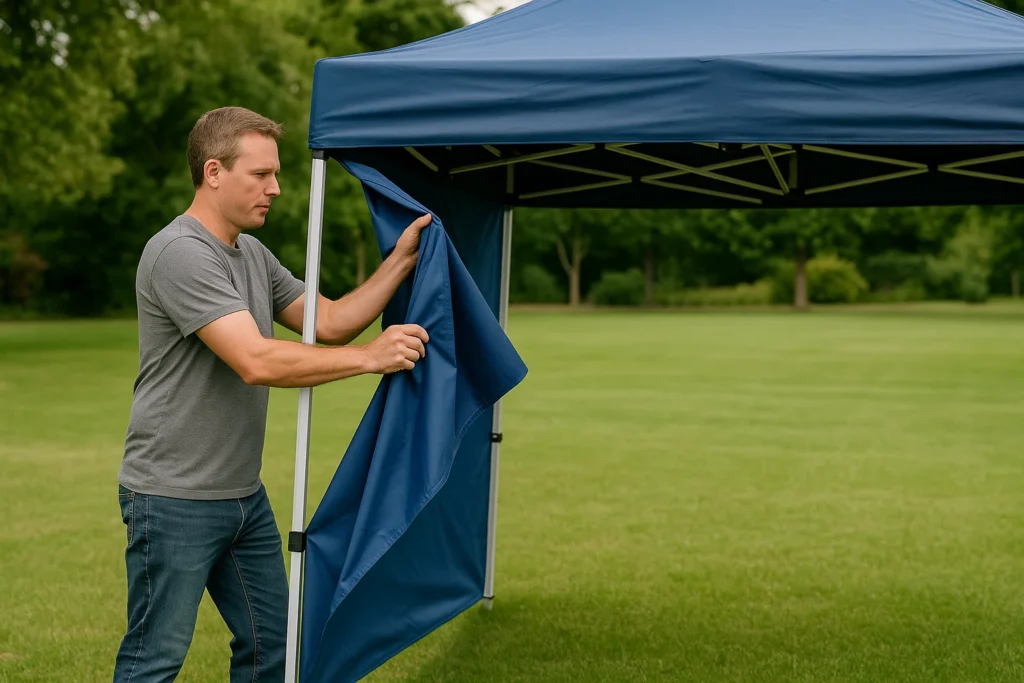
Step 2: Clear the Area Beneath the Tent
Ensure there are no tables, chairs, or equipment left under the tent. This helps prevent accidental damage while collapsing the frame.
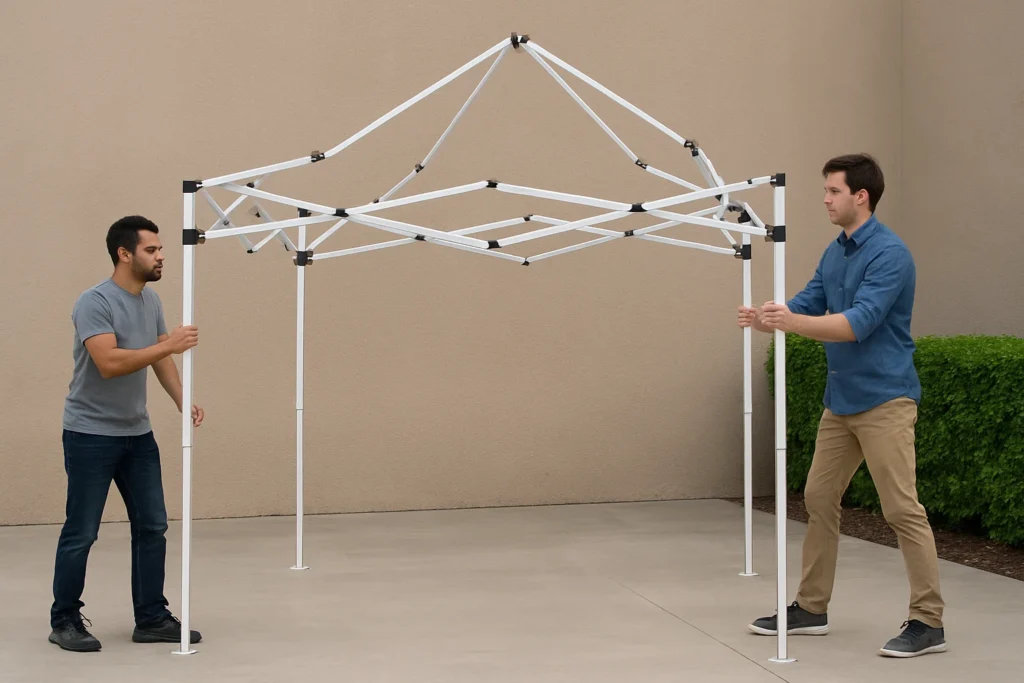
Step 3: Remove Anchors and Weights
Take out any ground stakes, sandbags, or weight plates. Store them in a separate bag if possible to avoid tearing the fabric during packing.
Step 4: Lower the Canopy Height
If your tent has adjustable legs, press the release buttons and gently lower all legs to their minimum height. This makes the frame more manageable and reduces strain on its joints.
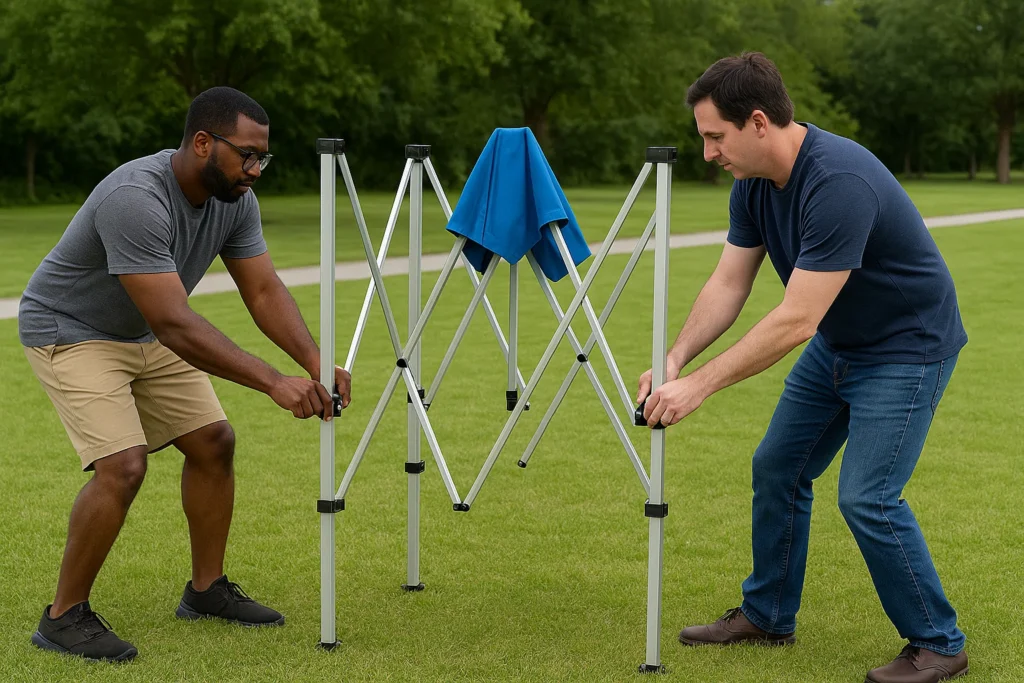
Step 5: Collapse the Frame Safely
Ask a friend to help. Each person stands on opposite sides and grabs the truss bars. Slowly walk toward each other, allowing the frame to collapse inward. Be mindful of pinch points, and avoid forcing any part.
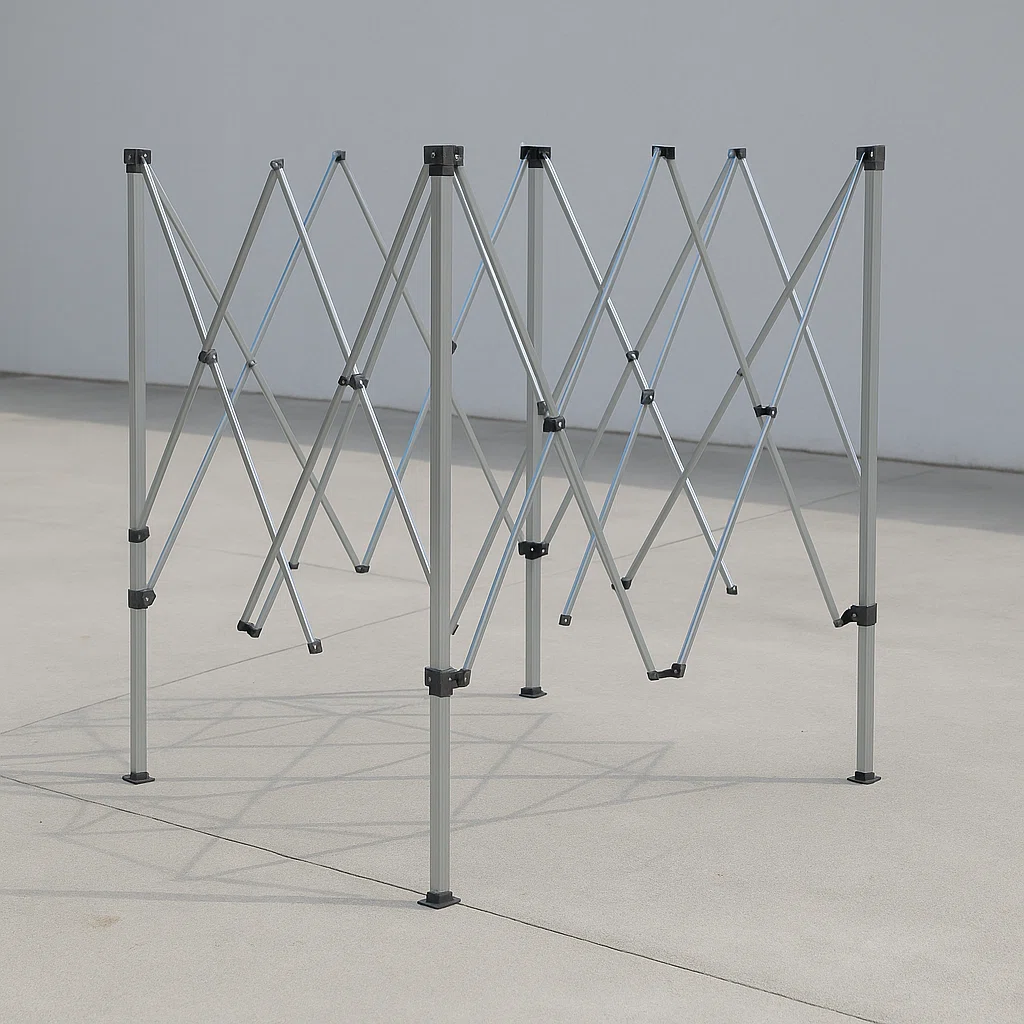
Step 6: Remove and Fold the Canopy Top
If your canopy top is detachable, remove it now. Lay it flat on a clean surface and fold it gently. Avoid hard creases by changing folding direction each time you pack.
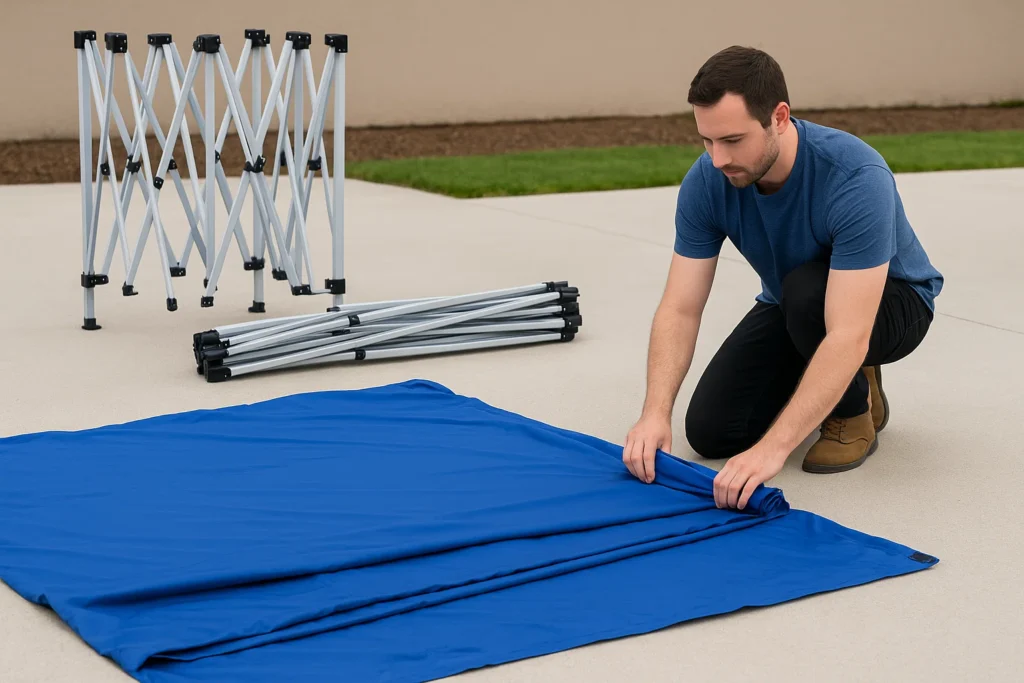
Step 7: Pack Everything Neatly
Place the folded frame into its carry bag, and separately store the canopy top and accessories. Don’t overload the bag to prevent tearing or uneven stress on components.
How to Store Your Canopy Tent Properly
- Keep it dry: Never store a damp canopy. Mold and mildew can destroy the fabric and cause odor.
- Use carry bags: Always use the bags provided to separate frame and fabric.
- Avoid hot or humid storage: Store in a cool, dry area away from basements or attics.
- Label your components: Especially useful if you own multiple tents or custom setups.
- Change fold patterns: Don’t fold fabric the same way every time—it prevents permanent creases.
Bonus Tips to Make Your sun shade canopy Last Longer
Durability is about care. Here are a few extra tips:
- Inspect your tent after each use for wear, tear, or loose parts.
- Clean dirt, sand, or sap off the frame before packing.
- Do not drag the frame on rough surfaces during setup or takedown.
Common Mistakes to Avoid
- Forcing the frame shut — can cause permanent damage
- Storing when wet — leads to mold and frame rust
- Leaving accessories unorganized — hard to find during next use
- One-person takedown for large tents — always better with two people
Conclusion
Learning how to take down your sun shade canopy the right way is essential if you want it to last for seasons to come. Follow the steps above, treat your tent gently, and make sure everything is dry and properly stored. A few minutes of care today can save hours of hassle tomorrow.
Frequently Asked Questions (Q&A)
Q: How long does it take to take down a canopy tent?
A: A typical 10×10 ft canopy takes about 10–15 minutes to disassemble properly, especially with two people.
Q: Can one person take down a pop-up canopy?
A: Yes, for smaller sizes. But for anything over 8×8 ft, it’s safer and faster with two people.
Q: Can I fold the canopy while it's still on the frame?
A: It’s recommended to remove the fabric if possible. Folding with it attached increases risk of tearing and awkward creasing.
Q: Where should I store my sun shade canopy?
A: In a dry, cool space—ideally a garage, storage room, or covered shed away from humidity and heat.
Still have questions? Visit our FAQ page for more insights and solutions.

